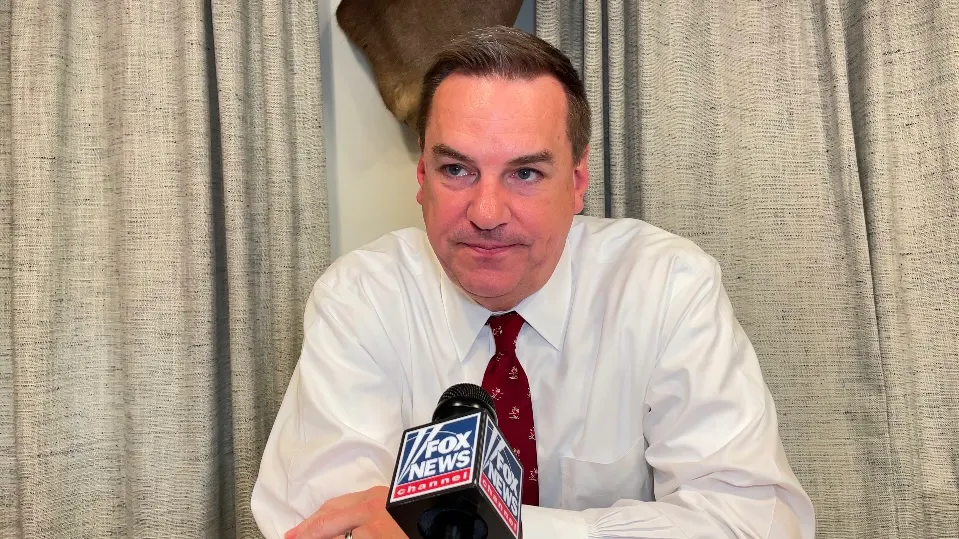Paragraph 1: A Favorable Battlefield for Republicans in 2026 Midterms
Rep. Richard Hudson, chair of the National Republican Congressional Committee (NRCC), expresses optimism about the GOP’s prospects in the 2026 midterm elections. He points to the recent presidential election results as a key indicator of a favorable political landscape. President-elect Trump’s decisive victory, including winning both the popular vote and key battleground states, provides a strong foundation for Republican candidates. Hudson emphasizes the geographical advantage the GOP holds, with 14 Democratic-held seats located in districts that Trump won, compared to only three Republican-held seats in districts carried by Vice President Harris. This disparity suggests a significant opportunity for Republicans to go on the offensive and potentially flip several seats.
Paragraph 2: Historical Context and a Shift in Dynamics
The 2026 midterm elections present a stark contrast to the 2018 midterms, when Democrats successfully flipped the House. Eight years ago, Democrats targeted numerous Republican incumbents in districts that Hillary Clinton had won in the 2016 presidential election. This strategy proved highly effective for Democrats, riding a "blue wave" to retake control of the House. Now, the tables have turned, with Republicans holding the majority and defending seats in districts that voted for Trump. This shift in the political landscape offers Republicans a distinct advantage as they seek to maintain their slim majority.
Paragraph 3: Battle-Tested Incumbents and Candidate Strength
Hudson highlights the resilience and experience of Republican incumbents who will likely face tough challenges in the upcoming midterms. He argues that these representatives have been "battle-tested," having weathered previous election cycles with significant spending against them. Their ability to withstand these challenges, according to Hudson, demonstrates their strong connection with their constituents and their effectiveness in delivering results. He portrays these incumbents as seasoned politicians with established brands and a deep understanding of their districts, positioning them as strong assets for the Republican Party.
Paragraph 4: The Trump Factor and Voter Turnout in 2026
While Trump’s presence on the ballot boosted Republican turnout in the 2024 presidential election, his absence in the 2026 midterms presents a potential challenge. Hudson acknowledges that Trump’s ability to mobilize low-propensity voters would be missed, but remains confident in the GOP’s ability to maintain high voter engagement. He believes that focusing on core campaign issues and delivering on promises made during the presidential election will be crucial in motivating voters, even without Trump at the top of the ticket. He also expects Trump to actively campaign for House Republicans, leveraging his influence to drive turnout and support GOP candidates.
Paragraph 5: Partnership with Trump and a Focus on the House Majority
Hudson emphasizes the strong partnership between Trump and House Republicans, highlighting Trump’s understanding of the importance of maintaining a Republican House majority to advance his agenda. He anticipates that this partnership will continue into the 2026 election cycle, with Trump playing an active role in supporting Republican candidates. Hudson views Trump as a valuable asset in defending the House majority and preventing Democratic control, which he believes would obstruct the implementation of the Republican agenda.
Paragraph 6: Priorities and Preparations for the 2026 Cycle
As Hudson embarks on his second term as NRCC chair, he outlines his key priorities for the 2026 election cycle. Candidate recruitment and fundraising are at the top of his agenda. He underscores the importance of recruiting high-quality candidates and securing the necessary financial resources to run competitive campaigns. Hudson plans to travel extensively to support incumbent Republicans and assist with fundraising efforts. He expresses confidence in the GOP’s ability to effectively prepare for the upcoming elections and maintain control of the House.















